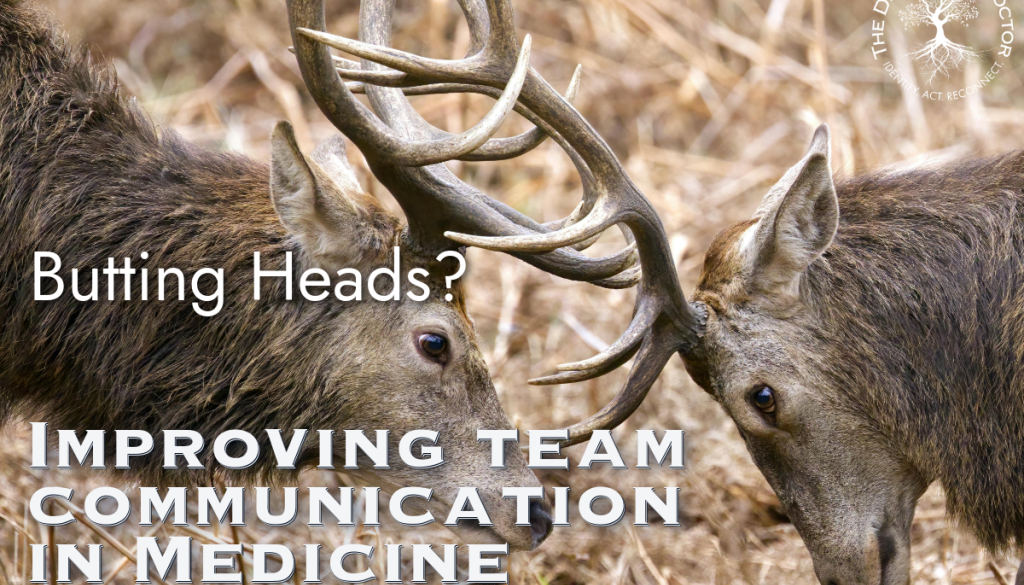Poor Communication in Medicine: A Pediatric Cardiologist’s Wake-Up Call
As a pediatric cardiologist, I’ve had my share of tough conversations. I’ve delivered devastating news. Held the hands of grieving families. Said, “I don’t know,” more times than I can count. Communication skills are a a core part of being a physician.
A Moment That Changed Everything
We had just finished rounds. A surgical colleague asked if I could speak with him for a moment. He led me to the cramped back workroom. He entered first, turned around, and let me have it.
Red-faced and voice shaking, he lashed out at me because two families had transferred their care elsewhere.
These weren’t strangers to our team. They were long-term patients I had followed since fetal diagnosis. The children were born at the same time. Due to the shared experience of having a child with a congenital heart defect, the families became close and supported each other during hospitalizations and procedures.
We had staff turnover, and one of our surgeons—“their surgeon”—left for a new opportunity. The families trusted him. He had performed two prior surgeries on their children and they understandably wanted him to perform the third and final procedure. I worked closely with them to coordinate the transfer of care.
They arranged transportation through a charity. A local newspaper covered their journey to promote the charity. I was unaware of and not involved in the article.
My surgical colleague read the story while drinking his morning coffee. He stewed over it until rounds were done and then erupted.
Instead of seeing loyalty built through years of care, he saw betrayal. And he took it personally.
He took it out on me.
I barely registered the words through the noise of my pounding heart. All I remember is how it made me feel. B lindsided. Embarrassed. Small.
I opened my mouth to defend myself, noticed my raised voice… then stopped. Something in me knew it wasn’t worth it.
I walked away.
But inside, the damage was done. That moment became a line in the sand. It impacted our working relationship, and was a wake-up call for me.
I realized technical skill alone wasn’t enough to survive, or lead, in medicine.
Survival requires:
The Gap: Poor Team Communication in Medicine
That uncomfortable confrontation in the workroom was a glaring communication breakdown. What should have been a professional discussion about patient choice became an emotional attack fueled by embarrassment and ego.
Unfortunately, this scenario happens far too often.
Recent research confirms what many of us experience daily: communication with colleagues directly impacts our wellbeing as healthcare professionals. A meta-analysis involving over 31,000 healthcare workers found that effective workplace communication was associated with a 37% reduction in burnout symptoms.
When I reflect on my own experience, I see how poor communication that day elevated my stress levels and led me to start looking for other jobs.
What I didn’t realize then was that implementing structured communication protocols, something I later learned through coaching, could have transformed that confrontation into a productive conversation about improving patient retention and satisfaction.
Leadership Styles Matter More Than We Think
The confrontation also highlighted leadership issues on multiple levels. My surgical colleague, rather than asking questions, mad assumptions and defaulted to blame.
What was missing was transformational leadership. The kind of leadership that can reduce burnout rates by 20% and increase job satisfaction by 30%, according to a Mayo Clinic’s study.
The leadership behaviors that would have made a difference align perfectly with what research identifies as essential for healthcare worker wellbeing:
- Recognition and appreciation of the challenging position I was in as the patients’ continuing care provider
- Psychological safety to discuss patient choices without blame or shame
- Authentic presence rather than emotional reactivity
- Clear communication of priorities like placing patient care over ego.
When leaders fail to embody these qualities, the ripple effects spread across the entire team, affecting everyone’s mental wellbeing and fulfillment.
Emotional Intelligence: The Missing Piece
Perhaps what struck me most, as I processed this incident, was the glaring lack of emotional intelligence displayed by all parties involved, myself included. I was caught off guard and didn’t regulate my own response effectively.
What I’ve since learned is fascinating: healthcare professionals who score in the top quartile of emotional intelligence assessments report 41% higher job satisfaction and 38% lower burnout than those in the lowest quartile.
These numbers are too important to ignore.
The components of EI most relevant to my situation were:
- Self-awareness – The surgeon lacked awareness of how his emotions were driving his behavior
- Empathy – Empathy for patients and for each other.
- Self-regulation – All of us could have benefited from better emotion regulation strategies
- Social skills – The confrontation showed a breakdown in constructive feedback and conflict resolution
Final Reflections: The Wake-Up Call I Didn’t Expect
When I look back on that day, the anger, the silence, the feeling of standing there alone, I realize it wasn’t just about two families or a bruised egos.
It was about all of us.
Healthcare doesn’t just need smarter doctors.
It needs stronger communicators.
Braver leaders.
Wiser humans.
That confrontation became my wake-up call. Not because it broke me—but because it showed me exactly where I needed to grow.
Coaching didn’t just help me survive medicine. It gave me back the career—and the life—I thought I was losing.





